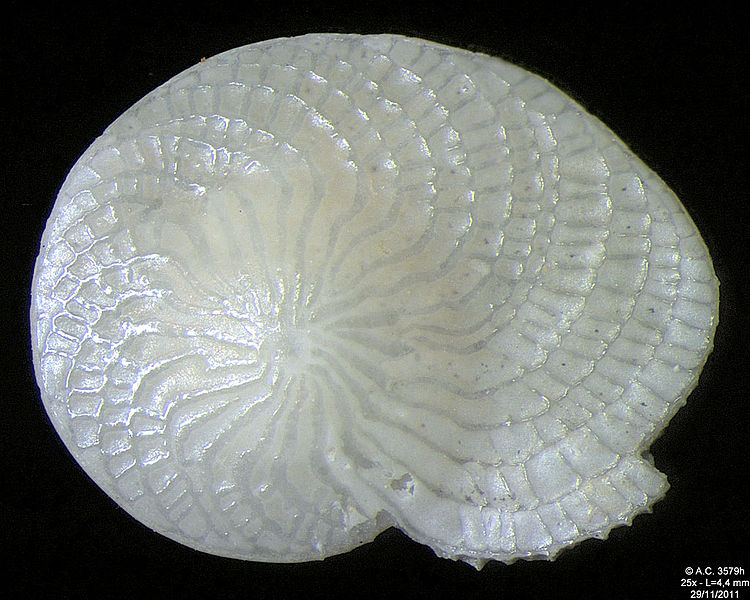Sea shell chemistry could aid efforts to interpret climate change.
Modern climate change needs to be understood in the context of  historic global fluctuations. But current methods rely on Antarctic ice core analysis, which can only go back as far as 800,000 years ago.
historic global fluctuations. But current methods rely on Antarctic ice core analysis, which can only go back as far as 800,000 years ago.
Researchers at the University of Cambridge have now pushed climate forecast data much further back in time. To do this, they examined the chemical composition of plankton that grew in ancient oceans.
"To understand current changes in global climate you need to know what has happened in the past" said Professor Simon Redfern. "As shells grow they record the chemical signature of the ocean they're growing in. You might have a shell that's a hundred million years old, and you can see in it the daily variations in the ocean chemistry."
Taking sediments from the sea floor and then blasting them with X-rays, the researchers looked at the shells of ancient plankton at a nanoscopic level. Plankton shells grow in rings, and the amount of magnesium in each ring indicated the temperature variations of the ocean when those rings grew, like the rings of a tree trunk: the warmer the ocean, the more magnesium per ring.
"From slow growing plankton you can get an idea of seasonal variation - whether there were extreme climate events within the growth period of the shell," said Redfern.
Sea shell deposits could therefore provide a daily climate record from hundreds of millions of years ago. Any trends found will aid our understanding of modern climate change.
The research team intend to apply the work to other minerals of biological significance that have been incorporated into plankton shells. They also seek to study the chemical response of corals to changing climate.
"That's important today in understanding coral bleaching and the viability of corals in reefs and cold-water corals that we have around us in Great Britain" added Redfern.
- Previous False memories
- Next Worldwide deforestation map










Comments
Add a comment